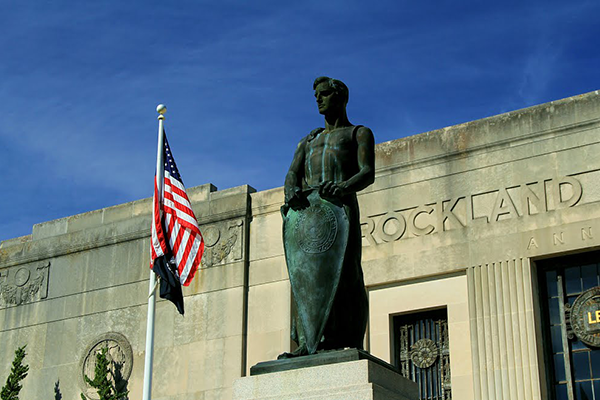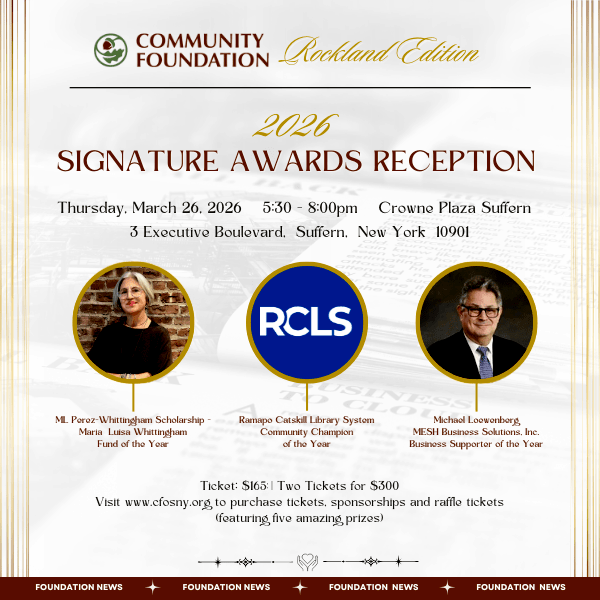|
RCBJ-Audible (Listen For Free)
|
Lawsuit Alleges That Term Limits Law Is Invalid Because It Was Never Voted On By Referendum; Councilman Don Franchino and Clarkstown Resident Tom Foley Join In On Suit
By Tina Traster
Town of Clarkstown Supervisor George Hoehmann is simply unwilling to give up on the prospect of repealing term limits and has gone to court with a new theory as to why he should be able to run for reelection.
The Supervisor, along with Councilman Donald Franchino and Clarkstown resident Thomas Foley, have filed a lawsuit in Rockland County Supreme Court this week alleging the town’s 2014 term limits law is illegal.
Clarkstown’s term limit law only allows for repeal by a super-majority of the board — that is a majority plus one vote. As written, to repeal the term limit law would require four votes. The current law was passed eight years ago by a unanimous vote of the town board. Hoehmann voted affirmatively for term limits at the time.
The suit now alleges the law should be voided because residents “never had the opportunity to decide the issue at a public vote.” Plaintiffs are essentially saying that the term limit law was not valid because it was not passed by a public referendum, and because the provision for repeal by super-majority is illegal.
To support their claims, plaintiffs argue that because New York law requires that every “act, motion or resolution” be passed by a majority of all of the members of the Town Board, imposing a requirement for a super-majority to repeal the law “curtails the voting power of elective officers” to pass laws by simple majorities. Public referendums are required whenever a local law, “abolishes, transfers or curtails any power of an elective officer.” The suit is essentially arguing that because the law only allows for repeal by super-majority and was passed without a public referendum makes it illegal.
Supporting Hoehmann’s legal theory is a case from the Appellate Division of the Supreme Court of New York, Fourth Department, which says, “A local legislative body lacks the power to enact legislation curtailing the voting powers of its own members; such legislation cannot be enacted except by referendum.”
In essence, Hoehmann’s suit alleges that super-majority votes are illegal unless passed by referendum. Clarkstown uses provisions for super-majorities by the town board in other laws, including increasing the number of housing units in both the AAR (Active Adult Resident) zone and the newly formed TOD (Transit Oriented Development) zone in Nanuet.
The suit also says plaintiff Foley’s rights as a voter in Clarkstown are being violated because he cannot vote for the candidate of his choice.
Last month, hours before the Clarkstown town board was set to hold two public hearings on ridding the town of term limits, the proposals were withdrawn. Sources say Town Supervisor George Hoehmann, who was a proponent of eliminating term limits, and who will be unable to run in November because his term limits will have expired, did not have enough support to pursue the effort.
The town had posted two public hearings – one to “repeal” and one to “amend” the town law passed in 2015 that limited board members to serve for no more than eight consecutive years. It had been clear that Hoehmann did not have the support of the four council members needed to repeal the law, the supermajority that was required. In what some say was a Hail Mary, the Supervisor hoped to amend the law, relying on a legal argument at the time that the wording of the original law was flawed.
Hoehmann, who voted for term limits, cannot run for another term in 2023 if the law remains in effect, forcing him out of elected office. Franchino is not term-limited in 2023.
Borelli also is term-limited in 2023.
Clarkstown has an obligation to defend its laws, so taxpayers will have to foot the bill to defend against Hoehmann’s term limit suit. Town attorney Craig Johns, who serves as Town Attorney at the discretion of George Hoehmann, likely has a conflict of interest and should not defend the suit. The town will have to hire outside counsel, which will require a town board vote.














